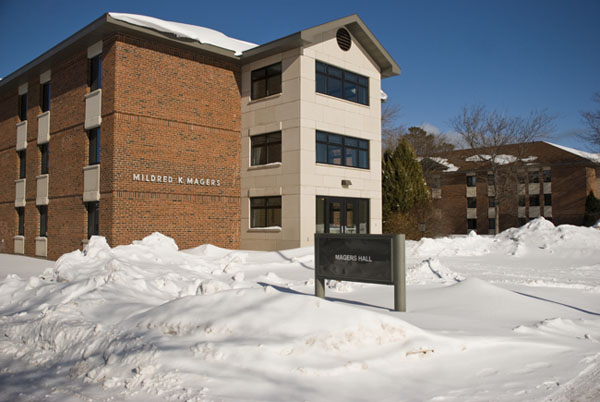Gender-neutral housing has been gaining recognition as a way to make all students feel comfortable while living on campus, and NMU has been looking into the idea.
Chris Hoffman, Arts and Sciences representative of ASNMU, has brought up the possibility of NMU turning to gender-neutral housing in the future.
Gender-neutral housing allows students to share a room with people of the opposite sex.

Gender-neutral housing has been a popular trend for colleges and universities across the country, and Hoffman said he believes that NMU should follow suit.
Hoffman met Jason Morgan, former ASNMU president, in October 2009, and they discussed gender-neutral housing. Hoffman decided that it would be a good idea to bring up the idea again this year.
Hoffman said ASNMU has been informally talking about gender-neutral housing since last October, but not until recently have they actually discussed the idea in depth.
“The idea of gender-neutral housing is about student empowerment,” Hoffman said. “We want to be inclusive and accepting to all kinds of people.”
As adults, students should be able to decide who they want to room with, Hoffman said.
Hoffman has been in contact with both transgender students and non-transgender students who support gender-neutral housing. These students said they believe that if NMU had gender-neutral housing, they would feel more comfortable living on campus.
“I got a very personal letter from a student who was rooming with a person of the same gender, and they weren’t getting along,” Hoffman said. “He had to buy a single room with a single bathroom.”
Monday night at the ASNMU meeting, a motion was passed to create an exploratory group to look into gender-neutral housing options. The group includes a chair, two ASNMU members, two people from the housing department and a possible third party.
“We would contact other schools and do research, and then present it to the university,” Hoffman said.
Ideally, Housing and Residence life would have a trial run of gender neutral housing this summer, but Hoffman doesn’t think that’s a realistic timeline because of all the planning that needs to be done, he said.
Carl Holm, director of housing and residence life, said that ASNMU is the only group discussing gender-neutral housing and that they haven’t brought it up to him yet.
“Making changes to the traditional gender-based method of roommate assignments is a big deal, requiring considerable review and discussion,” Holm said.
Another college in the Midwest, the University of Michigan, is also talking about making its university more gender neutral, said Peter Logan, director of communications at U of M.
The University of Michigan has had a gender-neutral policy for transgender students since 2005. They are currently discussing gender-neutral housing options for all students.
“We want something ready by the fall semester, but there are no set time tables,” Logan said.
U of M’s policy states that gender-neutral housing is “offered to students on a case-by-case basis. Interested students must contact a university liaison to discuss gender-neutral housing options. They include either singles or doubles with a private or adjoining unisex bathroom. The criteria is generally judged by availability of space.”
The gender-neutral housing policy U of M has in place only took a few years to go into effect, Logan said. He expects the new policy to take a few years to go into effect if passed, Logan said.
One difference between U of M and NMU are the bathroom arrangements. U of M has both suite rooms with connecting bathrooms and single rooms with community bathrooms.
“It’s easier to have a gender-neutral policy when you have more semi-private bathroom situations,” Logan said. “This is better for transgender students.”
According to genderblind.org, a website designated to promoting gender neutral housing options on campuses around the country, there are currently 54 colleges and universities that have gender neutral housing.
Hoffman recommends students and any others interested in promoting gender-neutral housing options go to genderblind.org to get more information, and also contact him at choffma@nmu.edu if they are interested in helping.
“All in all, this is a very complex issue,” Hoffman said. “Although, there is something simple about letting students choose who they want to live with.”


























Chris • Feb 10, 2011 at 3:12 pm
I would have loved to have had the option of gender-neutral housing in my time at NMU.
I just implemented a gender-neutral housing option at my institution in New York. I would be happy to serve as a resource for those working on this project. Please feel free to contact me:
Chris Mosier
Assistant Director of Residence Life
cmosier@mmm.edu
Chris Hoffman • Feb 3, 2011 at 1:10 pm
Just a few things:
– Gender Neutral Housing has been on President’s Round Table’s agenda since the start of the academic year and I have discussed Gender Neutral with Carl multiple times during these meetings as well as an informal meeting in his office
-I met with Jason Morgan in October 2010